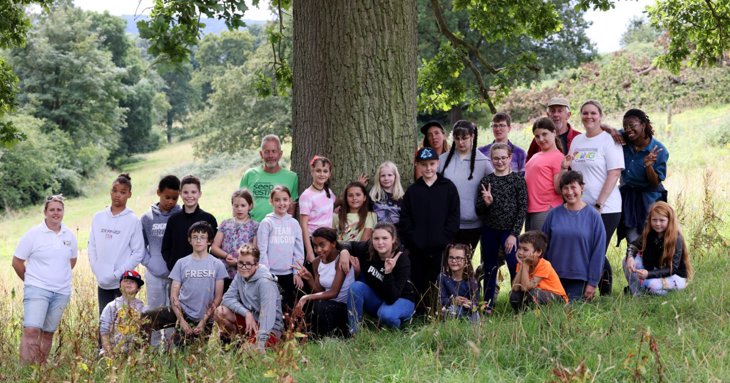There are few things more humbling than to speak to someone whose childhood was far from easy, but whose goal has simply been to live their life the best they can, aspiring only to what might be called 'an ordinary life'.
We were lucky enough to speak to the first ever Gloucestershire Young Carer, Jen Sebright - and the secret to why such an unassuming person should make such a powerful impact on us and other lies in her past.
Sebright was the child of loving parents, but also someone whose childhood was spent, like literally hundreds of young people’s are every day in Gloucestershire, in two separate worlds — one at school striving to be the best version of herself and one at home as a dedicated carer.
For Sebright, whose parents separated when she was very young, this meant looking after her mother. Ultimately, rather than break her, she seems to have used her experiences to learn every lesson she could about what it is to be human, to be loving, to be a parent and to genuinely care — and it seems to have made her rounder, richer, and more able.
Sebright agreed to speak to SoGlos as it helps Gloucestershire Young Carers celebrate 30 years supporting the county this year, in 2023. The charity also hopes to raise its profile and attract much-needed support from companies in the county.
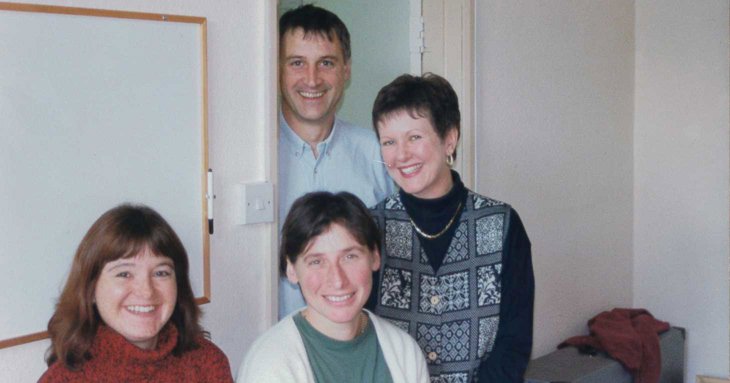
Back in the early nineties, when the small group of driven social workers and colleagues that formed Gloucestershire Young Carers were trying to work out how best to help what they thought was only a small but unsupported number of children who were secret carers for family members, it was social worker Jean Fox, who advised them to speak to the then 15-year-old, headstrong Sebright.
‘I cannot remember a time when I was not a carer as a child,’ said Sebright, now in her forties. She has not talked about her past for some time and some of the interview is spent with tears in her eyes and this interviewer's.
‘I must say that I have a lovely father as well and I am lucky he is still around. I just did not live with him, I lived with my mother. She was diagnosed with multiple sclerosis when I was four and it was progressive.'
Multiple sclerosis is a condition that can affect the brain and spinal cord, can be debilitating, painful and, in worst cases, can prove fatal.
‘It changed our lives. We moved a number of times, but ended up in a council house bungalow. Life was just really hard,’ she said.
‘It was not like I had a bad childhood — I didn’t know any different. I didn’t know what it was like not to worry about someone you loved, 24 hours of the day.
‘I used to have plenty of 'discussions' with my mother's social worker. But for some reason, I was asked to speak to the team who eventually set up Gloucestershire Young Carers.
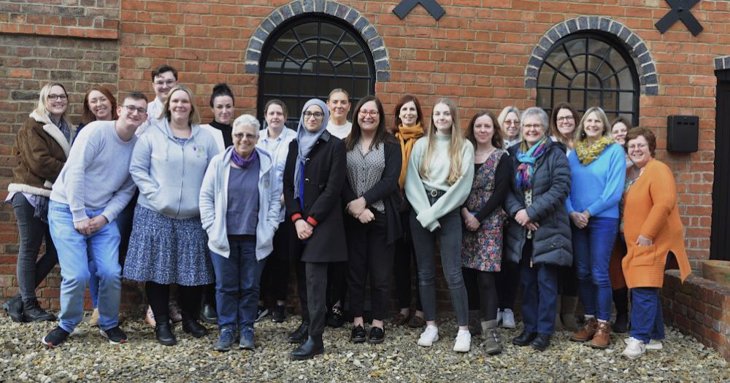
'I think they wanted to actually speak to young people and actually listen. I think it is really, really important to hear children's voices. I remember speaking at a conference in London.
‘I used to go along to meetings and was part of the steering group. I’m not sure how much help I was', she added, as if to ensure her efforts are not counted as more significant than those who asked for her help.
That unassuming modesty is not false. As the interview progresses, it becomes apparent she has an ability to take a 360-degree view of everything: what she does, what someone else might think, whether that is helpful, whether she is helping them. It is like her past fashioned a lens though which she cannot help but view the world.
Like many former carers, it is a superpower that makes them more mature and able than their years suggest, and it is that which the likes of Gloucestershire Young Carers helps them realise, while essentially just giving them a space to be themselves, to grow the seeds of hope like Sebright did.
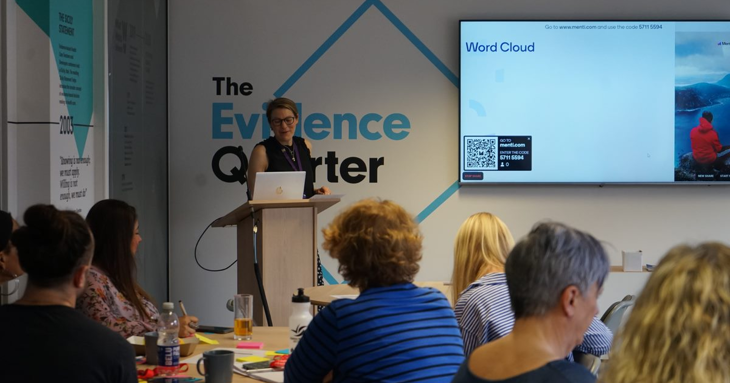
It was the 1990s when Sebright was approached. Her insight made those groundbreaking social workers and their team realise something they had suspected, but had never looked into — what social workers thought might be a few child carers in the county was, in fact, hundreds. And it remains so.
It also helped that pioneering team build what would eventually became a charity which could support and offer those young people a few golden hours a month in which they could be children; be themselves. Sebright, by default, became its first, official young carer.
‘I don’t want people thinking I didn’t have anything for myself. I was in school productions, I did have friends. I was just worried about my mum. All the time,’ said Sebright.
It was outside of school — which Sebright considered a safe, secure and welcoming place for her and the secret army of young carers — that her life was altogether different.
‘These are the children who would have done 1,000 things already before they even get to school. I think children who are carers need to feel they are not being judged, to have the time when they do not have responsibility. The team building Gloucestershire Young Carers wanted to know this back then.
‘That was 30 years ago now.’
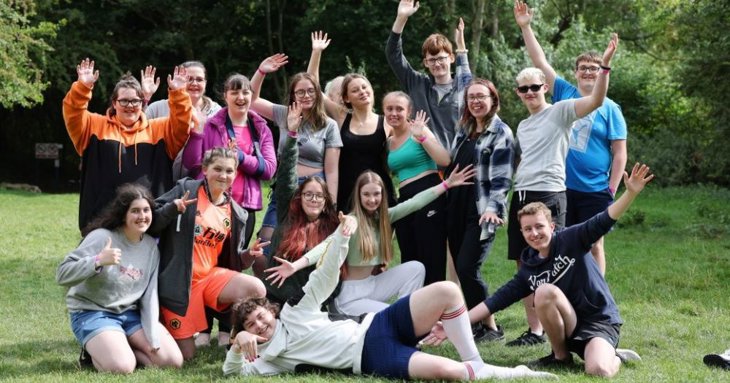
Gloucestershire Young Carers also has a fund to support young carers as they step out for themselves into the world. The fund, which was set up in memory of the charities founder Helen Predgen-Lay, does not get applications for money to buy a new laptop or a holiday, but for things like work boots for a first job, or money for a train fare home from university and to enable someone to continue to support their family.
Sebright does not dress up her own reasons for working hard at school.
‘I went off to university. I went because I wanted to escape. I was 18. And I didn’t come back,’ she said, with a brutal honesty she then qualifies.
‘It wasn’t that I didn’t go back. Of course I did, but I was worn out. Completely worn out.’
When asked about her mother, she describes her as a passionate teacher, someone who passed on a deep love of reading, of books and education.
‘I have inherited and still have many of her books. I always knew, thanks to her, that education was my chance,’ she said.
After university in Wales she moved to Yorkshire, following friends and opportunity, and trying to work out how to have a life of her own.
‘She died when I was 27,’ said Sebright. And when asked if her mother was proud of the woman her daughter became she is sure: ‘She was.’

Today, Sebright is a mother of two teenagers, a frontline social worker specialising in practice education in Bradford with a Masters in social work (to add to her BA in theatre and history from Wales and an Open University degree earned while working in a youth justice role), and she is happily married to her partner of 20 years, Emma.
Dealing with her own sexuality, especially back in the more unforgiving 1990s, was also part of the burden of her formative years, she admits.
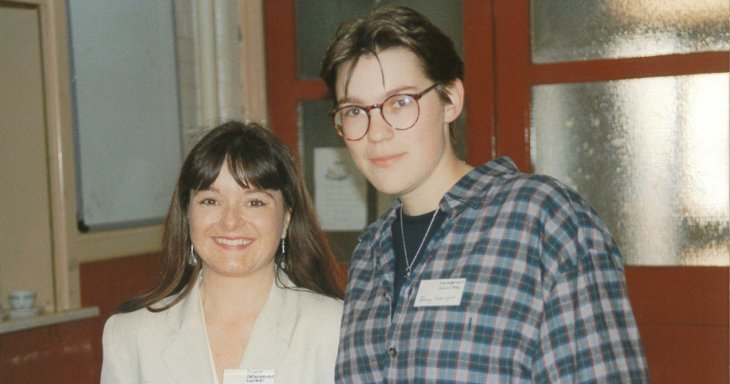
When it is suggested that, after everything, she has her hands on the holy grail she and other young carers dream of — a normal life, with all that brings, especially with a loving family — she smiles, as if wondering if it is really true. She smiles a lot in the interview, throughout which her positivity and determination manifests in her stories — it is impossible to feel anything but in awe of her.
‘My past will always be part of me, and I’m dealing with it. I will give you an example,' she said.
'The other day, my wife and I had a discussion about new floors for the house. I said, ‘should we be spending so much money? When I was growing up we never had new carpets’.
‘She looked at me and said, ‘you are allowed to have nice things in your life you know’.


